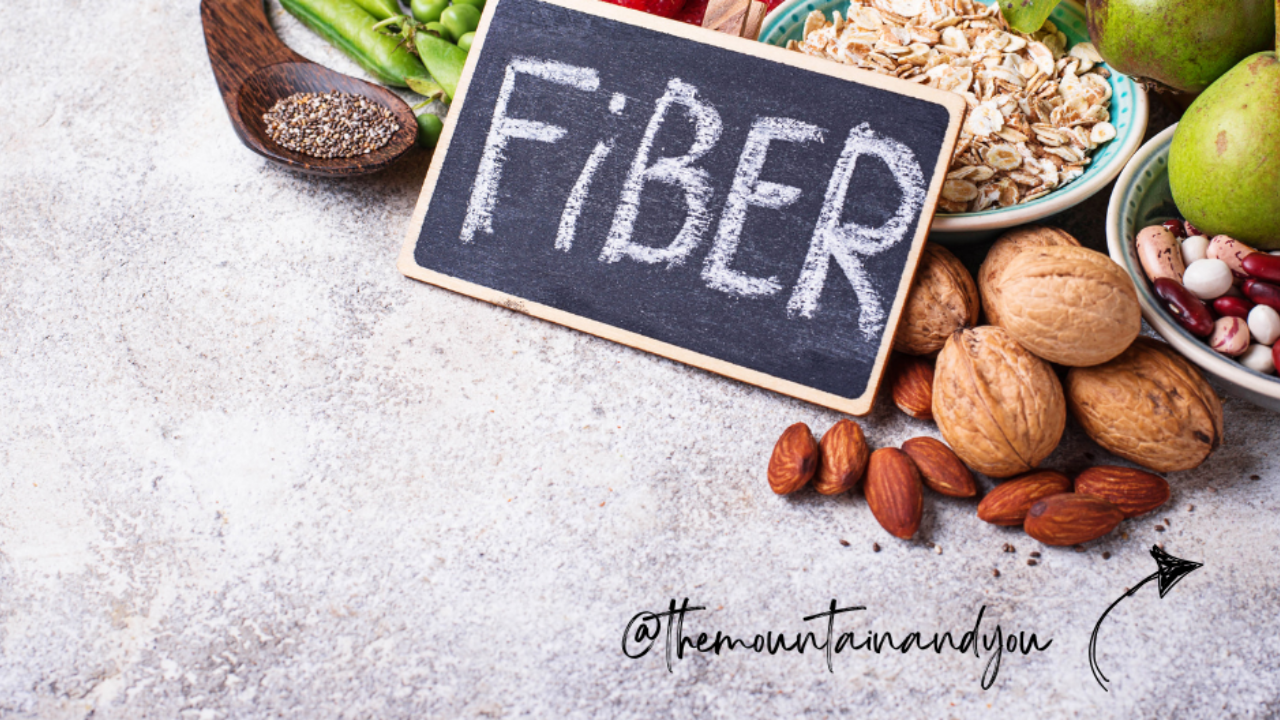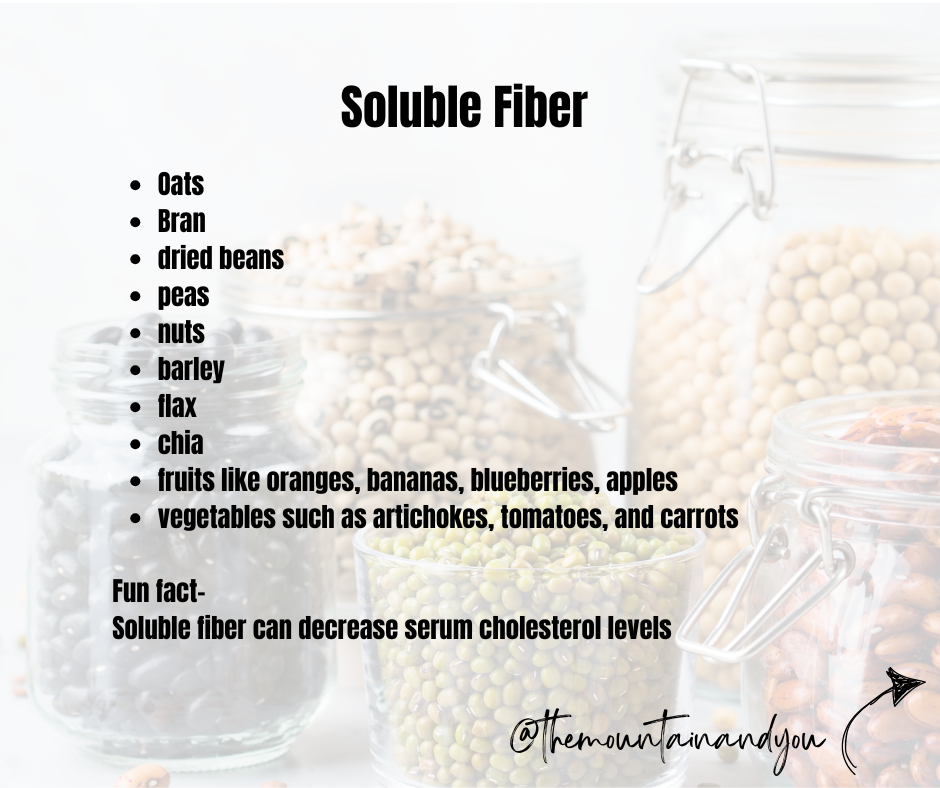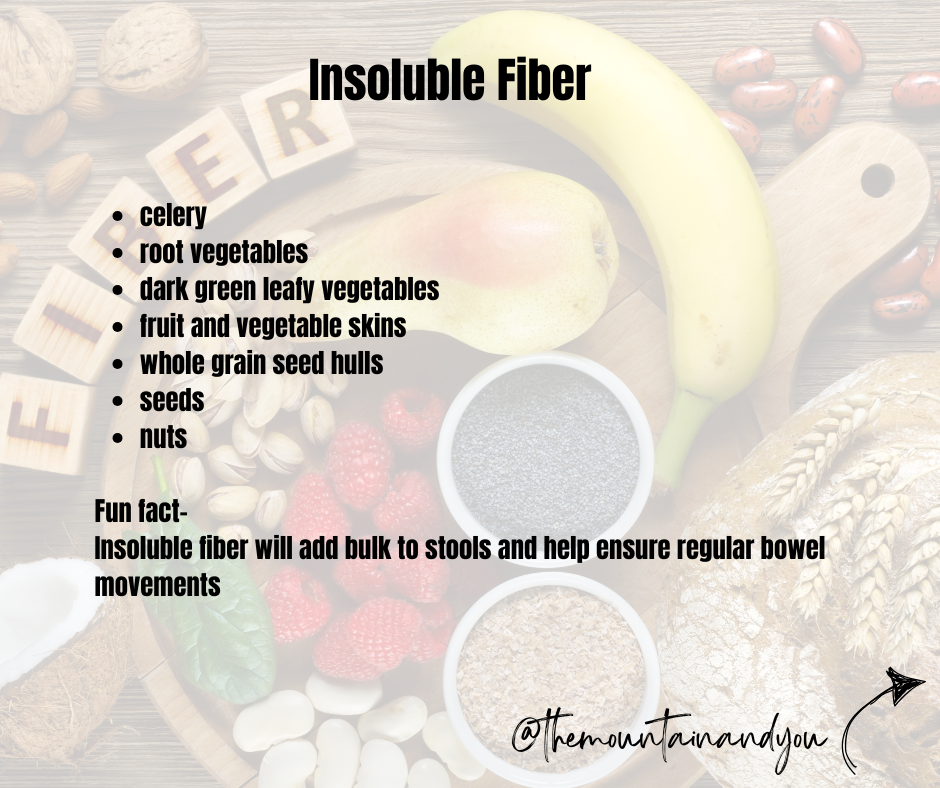
Fiber
Fiber is a type of carbohydrate found in plant-based foods that your body can’t fully digest. Instead of being broken down for energy, fiber moves through your digestive system mostly intact, providing several important health benefits:
- Digestive Health: Fiber adds bulk to your stool and helps food pass more easily through your intestines, which can prevent constipation and promote regularity.
- Heart Health: Soluble fiber, found in foods like oats and beans, can help lower cholesterol levels by binding to cholesterol particles and removing them from your body.
- Blood Sugar Control: By slowing down the digestion and absorption of sugar, fiber helps prevent sharp spikes in blood sugar, which is particularly beneficial for people with diabetes.
- Weight Management: Foods high in fiber tend to be more filling, which can help you feel satisfied longer and may reduce overall calorie intake.
- Gut Health: Fiber acts as a prebiotic, feeding the beneficial bacteria in your gut, which can improve your overall digestive health and boost your immune system.
It comes in two main types—soluble and insoluble—each with its own benefits:

Soluble Fiber-
How It Works: Dissolves in water to form a gel-like substance.
Benefits:
- Helps lower cholesterol by binding to cholesterol particles.
- Aids in blood sugar control by slowing the absorption of sugar.
- Common Sources: Oats, beans, lentils, apples, citrus fruits, and barley.

Insoluble Fiber-
How It Works: Does not dissolve in water; it adds bulk to the stool and helps food pass through the digestive tract.
Benefits:
- Promotes regular bowel movements and prevents constipation.
- Supports overall digestive health by keeping the digestive system moving.
- Common Sources: Whole grains, wheat bran, nuts, and many vegetables (like carrots and cucumbers).
Why Both Matter
- Balanced Digestive Health: Incorporating both types of fiber ensures you get the benefits of improved cholesterol levels and blood sugar control (soluble) along with enhanced digestion and regularity (insoluble).
- Overall Well-Being: A diet rich in both fibers can contribute to weight management, heart health, and a robust digestive system.
Including a variety of fiber-rich foods—such as fruits, vegetables, whole grains, legumes, nuts, and seeds—in your diet can support these aspects of health and contribute to overall well-being.

